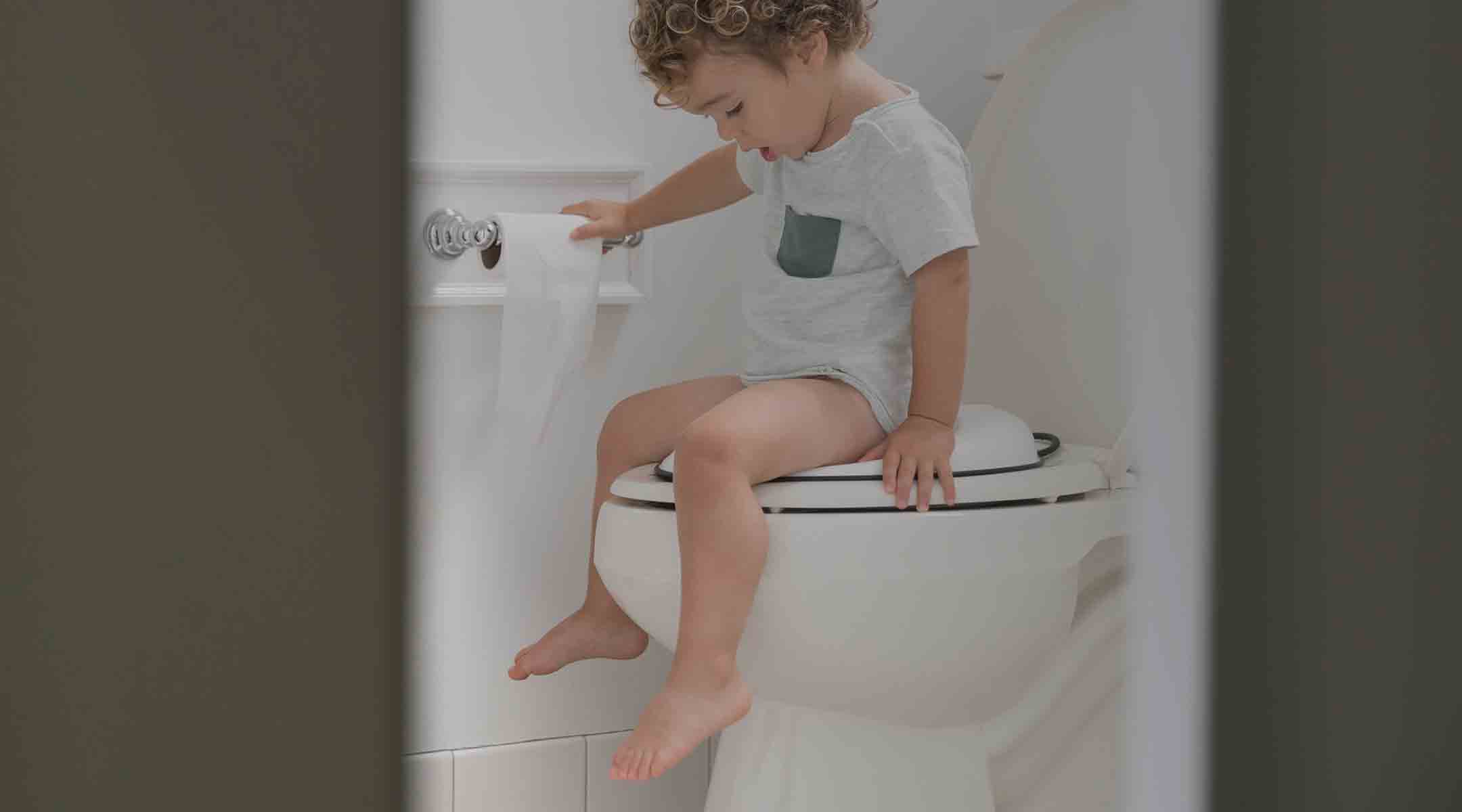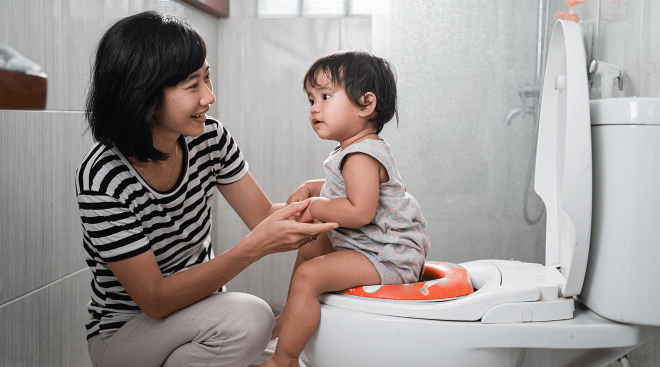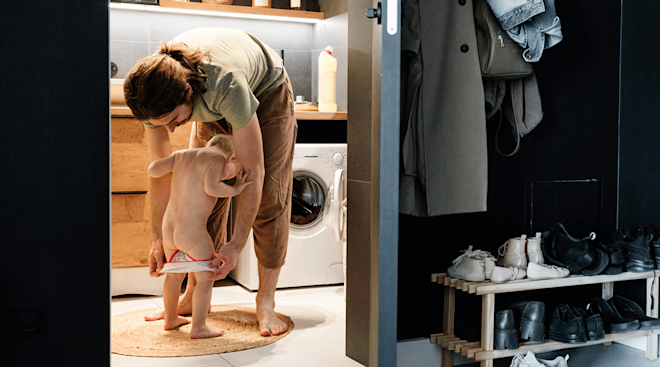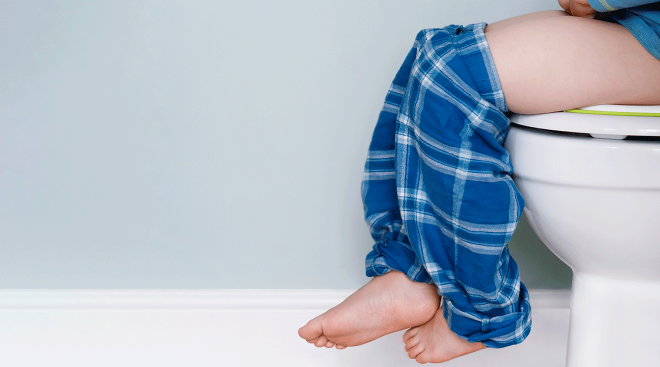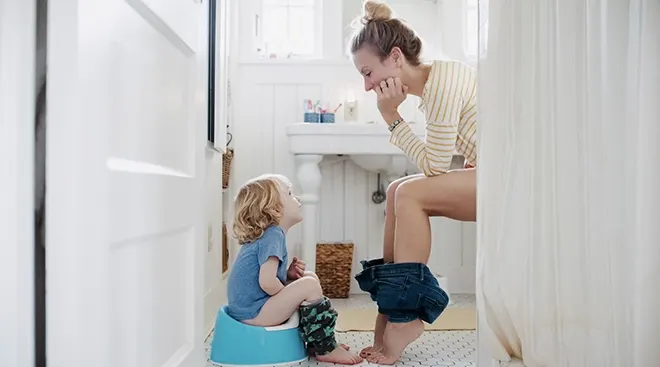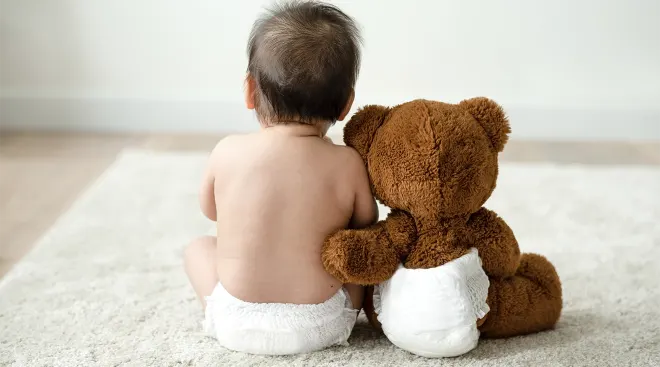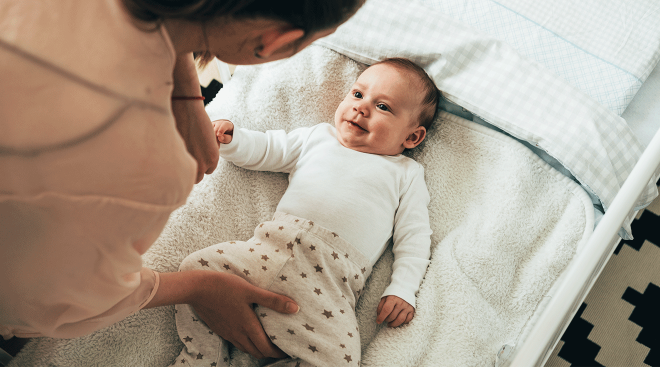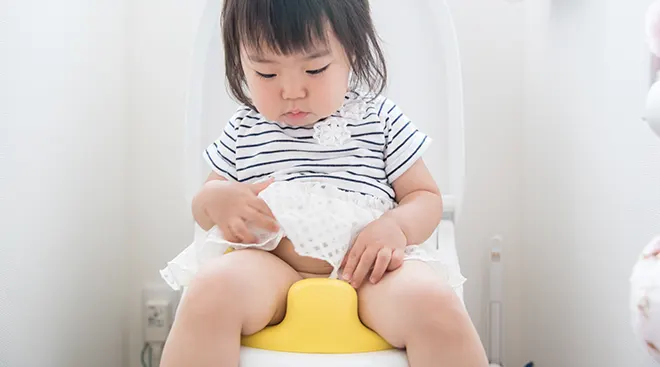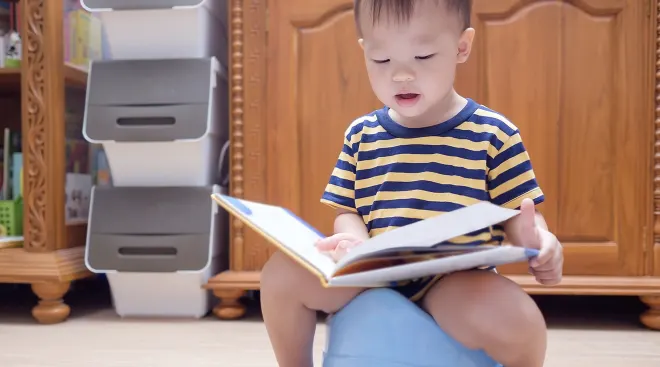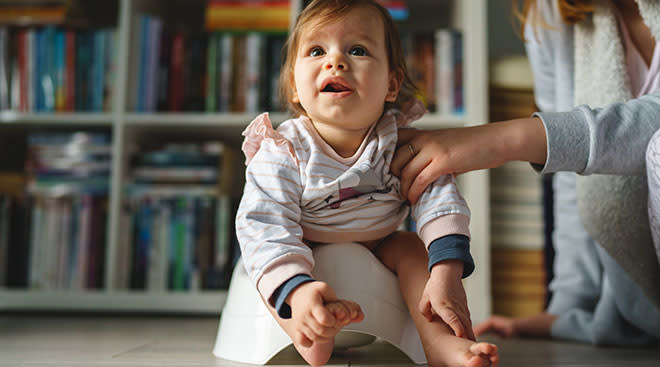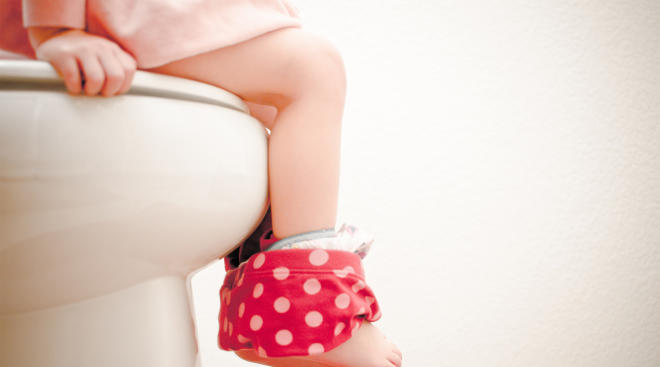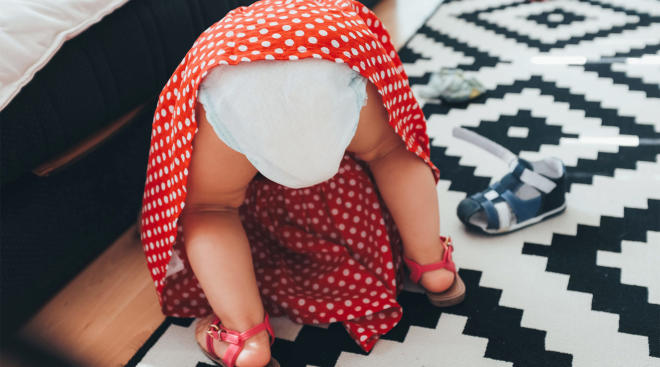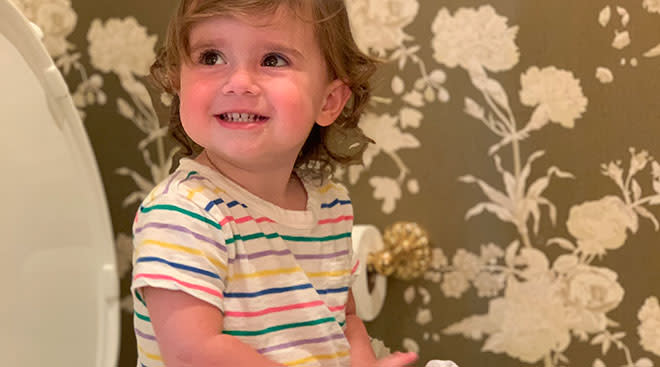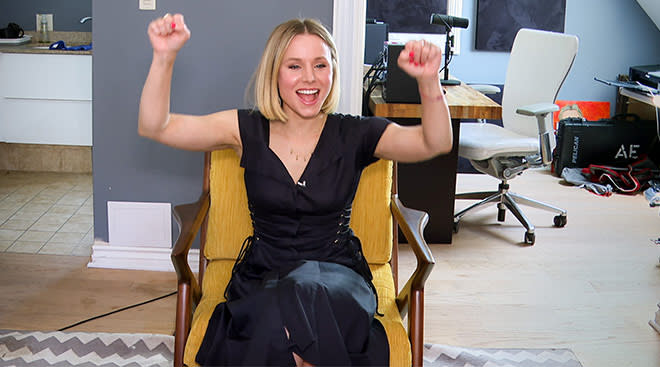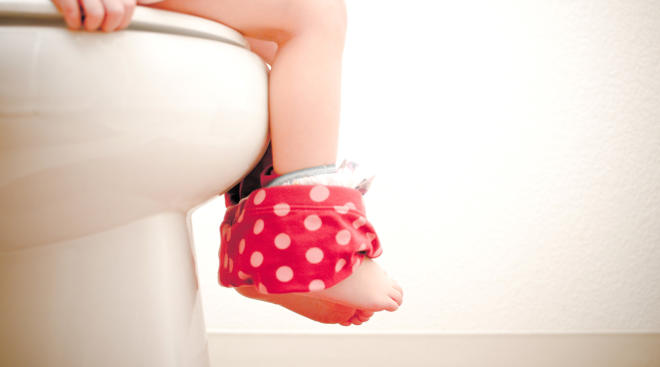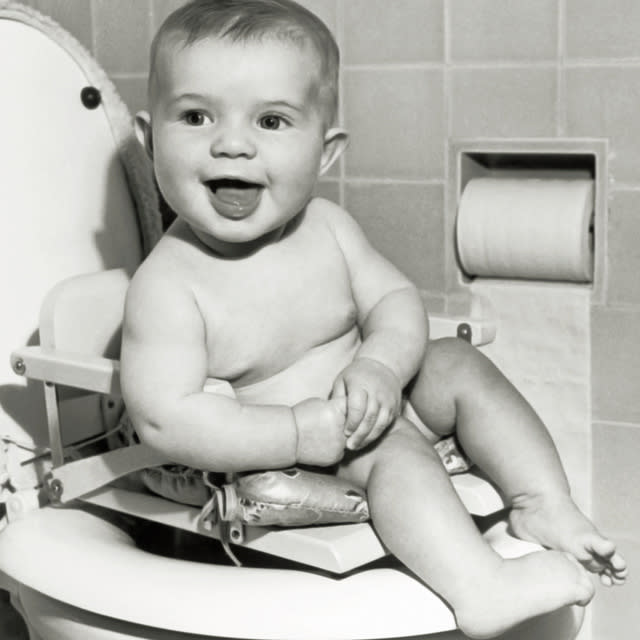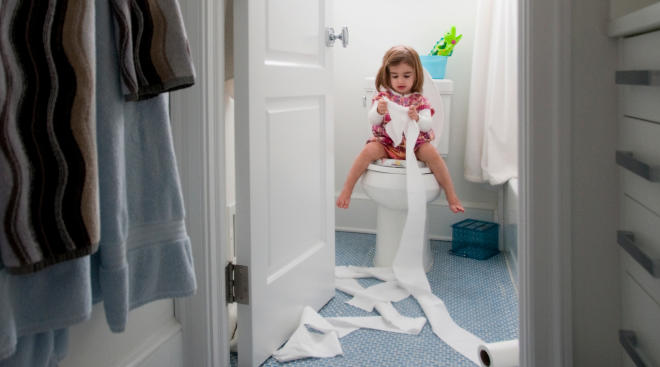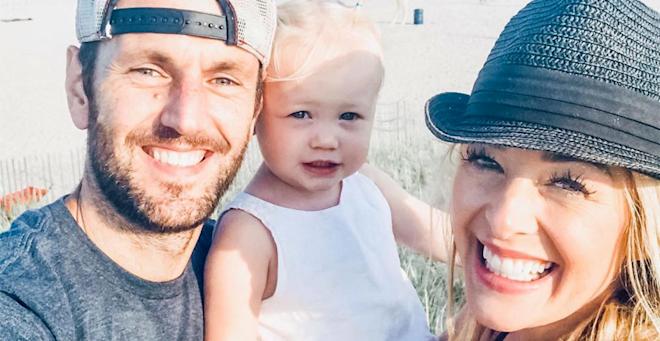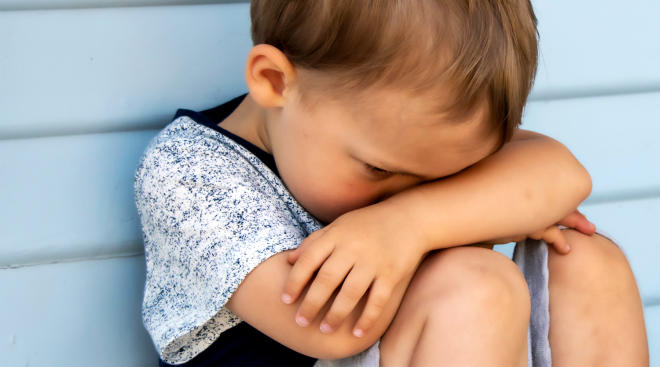Tips and Tricks for Nighttime Potty Training
Potty training isn’t just an achievement for kids—it represents a major parenting milestone too. And potty training at night is cause for a full, break-out-the-confetti-level celebration. You can save all that money you were spending on diapers and congratulate yourself for completing a major parenthood achievement. But if your kid isn’t there yet, don’t worry. Nighttime potty training can be a totally different beast than daytime training, and different kids are ready at different times so the key is not to stress it. Here, experts and parents who have been there share their tips on how to potty train at night.
Daytime and nighttime potty training are two different beasts, a lot of which comes down to biology. “Potty training is a daytime process,” explains potty training expert Samantha Allen of NYC Potty Training. “You can’t teach someone to do something while unconscious, but we can set kids up to be successful staying dry through the night.”
Terri McFadden, MD, a general pediatrician at Children’s Healthcare of Atlanta and associate professor at pediatrics at Emory, says that readiness for potty training at night is a totally different developmental step than being ready during the day. “Even children who are completely dry during the day may not be developmentally ready to get through the evenings,” she explains.
Since so much of potty training is physical and unique to the individual child, it can be hard to set a hard and fast nighttime potty training age. “It’s more about developmental readiness than chronological age,” Allen says. Since she recommends pairing nighttime potty training with daytime training, she says, “as long as the child can follow simple directions, can physically get to the bathroom and onto the toilet, and is staying dry for up to two hours, the child is ready.” If possible, she advises trying sooner rather than later.
Allen also notes that potty training is as much about the child being ready as it is about the family’s preparedness since parents will need to carve out time to dedicate to this endeavor.
McFadden says that between ages 2 and 3 is typical for daytime training. For potty training at night, she says “if they’re completely dry during the day or with infrequent accidents and they’ve gone for a few weeks a month without having a nighttime issue then you can consider that they’re ready.”
For some kids, everything clicks into place at once and they are fully potty trained in just a few days. But for others, it may take much longer. “We know that most children should be able to get through the night by age 5,” McFadden says, “so we don’t even talk about bedwetting as a problem until about 5 because so many children will continue to be wet even though they’re completely dry during the day.”
Common wisdom says that girls tend to pick up potty training slightly earlier than boys, and McFadden says there may be some kernel of truth to this, but that the difference isn’t major.
If you’re ready to take the plunge and ditch the overnight diapers, here are some tips from experts and moms who’ve been there on how to make the process as painless as possible:
•Set a Consistent Daytime Potty Training Plan. Since nighttime potty training stems from daytime training, it’s important to make sure you have your daytime plan in place. “Make sure you have a solid daytime potty training plan that’s individualized for your child,” Allen says.
•Take a Family History. McFadden says that to get a sense of the timing for nighttime potty training, parents can ask their own parents when they stopped having nighttime accidents. “It can give you a general idea. [Bedwetting] does tend to run in families,” she says.
•Limit Liquids. To prevent nighttime accidents, try to limit how much your kid is drinking in the evening. “After dinner, drinks were limited,” Jamie K says. “Serving drinks in plastic shot glasses helped a lot—they were novel, brightly colored, and the kids didn’t feel like they were being short-changed because ‘Hey! The glass is full!’” McFadden agrees, and says in particular to limit juice and sugary beverages, which “tend to bring more water into the bladder.”
•Make Going Potty Part of Bedtime. Once potty training at night is the goal, it’s important to make going potty a part of the bedtime routine just like brushing teeth. “Get them to go before bed, and right when they wake up,” suggests Elaine B.
•Be Prepared for Accidents. There are bound to be a few accidents during the process, so it’s best to be prepared. ““Double layer the sheets!” recommends Lindsay B. “Do a waterproof protector, then a sheet, then another waterproof protector, then another sheet. Keep a spare blanket handy in the room. When they wet the bed, strip off the top two layers and the bed is already made! Grab that spare blanket and you are all set. Lifesaver at 2 a.m.!” Alternately, Sarah H. recommends putting wee wee pads under the sheets to protect the mattress.
•To Wake or Not to Wake. Some parents have had success with preemptively waking their child up to go to the bathroom in the night, sort of like a dream pee. “I woke my daughter up in the middle of the night and took her to the potty, and then would take her back to bed,” Jo Ann O says. “After a few short weeks, she was holding it through the night and now wakes herself up if she needs to go.” McFadden says she does recommend this approach as long as it’s a child who goes back to sleep easily, but says “if it hasn’t been a problem that probably isn’t the first step.” For many parents this is worth trying, but Allen isn’t a fan of the approach. “This is not necessary, and is exhausting for everyone involved,” she says. So, do what feels right to you, just know that it’s an option.
•Wait Until They Are Waking Up Dry. Many parents say they didn’t have to do anything in particular for potty training at night. “I didn’t do anything to night train,” Samantha W says. “I kept a pull-up on my son until I noticed a few weeks of dry pull-ups, that’s it.”
•Follow Their Lead. Some kids may let you know when they’re ready, and it’s important to follow their lead when they do. “My 5-year-old nighttime trained a year ago and we were waiting for at least a week of dry wake-ups, but he told us when he was ready,” Allison S says. “I thought we were in for lots of wet sheets, but he did great. We’ll take a similar approach with my daughter (almost 3) and see what happens.”
•Celebrate. When your child does stay dry during the night, don’t be afraid to lay on the positive reinforcement. ““My guy was daytime potty trained long before nighttime. We didn’t stress about it,” Misti T says. “But the first time he had a dry diaper we made a big deal of it. Then I told him if he had two more nights in a row with dry diapers he gets to wear his big boy undies all the time. He did and we switched. (Knock on wood) never an accident since!” McFadden echoes this, and says that rewarding staying dry with something like special underwear with favorite characters can be motivating.
•Don’t Stress It. For both of Melissa G’s children, it took an extra six to seven months after they were daytime potty trained before overnight potty training kicked in. She says the most important thing to keep in mind is not to stress it. “I just followed their lead, I didn’t push or stress about it,” she says. “It’s a hard thing to accomplish—you put so much pressure on yourself as a parent to make sure you are doing everything right when in reality it will happen in it’s own time.” McFadden agrees wholeheartedly, and says that parents need to understand it’s not a failing on their part if their kid doesn’t catch onto potty training at night, and should avoid comparing themselves to others. “The harder you push sometimes the more difficult it becomes in the outcomes,” she says. “Give it a break, start again, and keep it all in perspective.”
•Know When It’s a Problem. Though it’s very common for kids to continue wetting the bed up until age five or so, if it’s a consistent issue there may be an underlying cause. “The other thing to take into consideration is if something is going on in the household, like the birth of a new baby or family issues—even subtle ones that we don’t even realize the children are paying attention to—it can cause them to regress a little bit,” says McFadden. And, as always, if you’re concerned check in with your pediatrician to rule out any health or behavioral issues.
Please note: The Bump and the materials and information it contains are not intended to, and do not constitute, medical or other health advice or diagnosis and should not be used as such. You should always consult with a qualified physician or health professional about your specific circumstances.
Plus, more from The Bump:
Published March 2018
Navigate forward to interact with the calendar and select a date. Press the question mark key to get the keyboard shortcuts for changing dates.
































